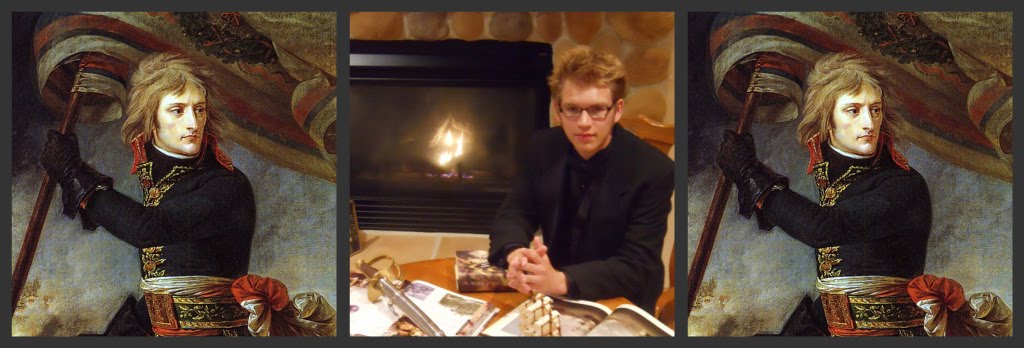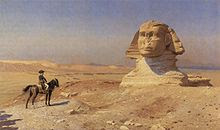This past year, I was blessed with the opportunity to travel to Greece and London over my college's Spring Break. During this completely indescribable journey, our group took time to tour the British Museum. While I say tour, the word simply does not describe the magnitude of the building and its contained exhibits. "Glanced" might be a more accurate term. Regardless, the British Museum held a piece of history I, and countless others, find to be pivotal in world history. Yet the story of this object may not be well known to all; the Museum's display certainly made scant reference to its original discovery. So, today's Napoleon Sighting will examine the discovery and significance of said object, the Rosetta Stone.
The story begins in France in the year 1797. In August of that year, General Bonaparte offered a plan to the Directory. Previously, the national hero had been concentrating on a strategy to invade the British Isles. But, in a situation all too familiar in the coming years, France lacked the naval support it needed for such an operation. In lieu of this, Napoleon suggested digging a tunnel under the channel (a la the modern day Chunnel), utilizing air balloons, and other such schemes to ferry troops from Continental Europe across the English Channel. However, all of these came to naught. And so, Bonaparte examined another region of the world. With the United Kingdom's unfailing hostility to the new order forming in Revolutionary France, any martial operation at the time needed to hurt the English in some way. Since attacking their homeland was not feasible, attacking their economic colonies would have to suffice. As such, Napoleon suggested an assault to Egypt. While Egypt was not an English colony, trade and supply routes to India passed right through this arid land. Therefore, Napoleon asked the Directory to approve a plan to remove English influence over the region. They agreed, and an invasion force was formed.
After months of planning, Napoleon, along with forty thousand troops, set sail for Egypt in late May of 1798. Along the route, he liberated the Maltese population from their overbearing rulers, the Knights of Saint John. Finally, however, he arrived at Alexandria on July the 1st. Then the military campaign proceeded; however, Napoleon's martial strategy does not concern us this day. Instead, we examine another facet of his diverse personality, his intelligent foresight.
In a move highly similar to Alexander the Great, Napoleon brought along scholars, linguists, scientists, and archeologists. He knew that his forces would be occupying a land with thousands of years of history. Additionally, it was highly important to Napoleon, a genius himself, that this knowledge be made available to European society. As such, he included this entourage of intellectuals among his soldiers. It was these men that discovered the stone amid the remains of a fort in Rashid (Rosetta). Upon discovering this stone, these men quickly came to realize how important their find was.
As you might have noticed, it now resides within the British Museum, not the Louvre or a similar French collection. This transfer of ownership occurred soon after the stone was discovered. With the defeat of the French fleet at the Battle of the Nile, Napoleon lost virtually all ability to resupply his army from mainland Europe. Also, ships traveling from Egypt back to Europe were quite few, and artistic issues become secondary to martial issues during a campaign, so the Stone was not transported back to France. Eventually, in late August 1799, Napoleon left his command in Egypt to perform his coup d'état in France, and French forces in the region were later defeated by the British. Under the conditions of capitulation, the Stone was transferred to English possession.
However, the Stone's importance does not reside with its ownership. Rather, it is significant as the object which essentially created and expanded Egyptology. Furthermore, if Napoleon had not possessed the foresight to include scientists among his forces, the Stone may never have been discovered.



No comments:
Post a Comment